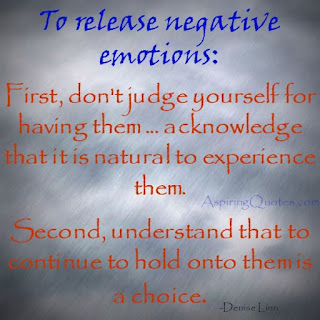We are more than our bodies.
Have you looked at photographs of yourself and thought, “OMG. I look so fat. I need to lose weight!”
YOU ARE MORE THAN A BAD PHOTO OF YOURSELF.
And we are more than our physical appearance.
We have developed this terrible tendency of longing after the bodies of other people. We follow excessive fitness and celebrity accounts on Instagram, admire models in magazines and become envious of every Victoria’s Secret model after their annual fashion show. We fixate on our “flaws”, strive to transform our bodies to look exactly like the person we wish we were and hate ourselves when we fall short.
Sad, isn’t it? We’ve become used to loving the bodies of others and have grown to hate our own. I’d be lying if I said I was not guilty of such a thing. For years, I destroyed myself mentally by hating the person I was physically. I’d wake up in the morning, look in the mirror and grab onto my stomach in disgust.
“Why can’t I be skinnier? Why can't I look like ‘so and so’?”
The questions were endless and depressing. All of a sudden, I realized that throwing a pity party every day was becoming quite sad, depressing, and unhealthy. I was longing after this “healthy” (translation “perfect”) body, but my mental health took a backseat, as well as my self-esteem. Hating my body wasn't getting me anywhere.
I’ve seen the same happen to plenty of people around me over the years. We want to look a certain way, so we take extreme measures to get there —anorexia, bulimia, self-harm, etc.
When did being healthy mean we had to self-destruct in the process?
Being healthy is not just about having abs, being at an ideal weight and eating salad.
Enjoying life, loving the body you are in (regardless of shape/size/color) and having balance is what makes us healthy.
IT IS TIME TO LOVE YOURSELF!
I cannot stress the importance of that enough. At the end of the day, you are you. We are not the number on the scale. We are not fat or bones or whatever else we may call ourselves.
We are human beings with our own likes, dislikes, goals, talents and much more. Maintaining our physical health is important, but keeping our mental health is the key.
We need to love every part of ourselves — the good, the bad, the pretty, the ugly — unconditionally. No one is perfect, not even the photo-shopped celebrities in the magazines we wish we looked like. If you decide to embark on a health journey or are already on one, understand that it isn’t all about the workouts and the proper nutrition.
Our journey is a chance for us to accept ourselves for all that we are, to better ourselves in ways that we’ve always wanted and to be doing it for the right reasons.
STOP doing things you don’t like, STOP punishing your body for being a body. START living life the way you want and LOVE yourself along the way. There is too much hatred in this world… the last thing you should be doing is adding more.
Here are some tips for increasing self love:
1. Call out what you see
We’re swamped with images these days, most of which have been heavily photo-shopped. A lot of the images we end up comparing ourselves to are not even real bodies. We see ourselves from the moment we wake up, tired and puffy eyed – we only see other people putting their best foot forward. No one is perfect. We all have off-days and we all have things about ourselves we don’t like. Remind yourself of that next time you find yourself comparing yourself to someone else.
2. Choose what you look at
Subliminal messages sneak into our subconscious without us noticing it. On social media, unfollow any of the brands or magazines that imply anyone should ever change themselves or improve their appearance. Fortunately, people are starting to call out this behavior and promote healthier body image with hashtags like #bodypositive. Remember: there is no perfect body or bikini body – there are simply bodies!
3. Start loving your body exactly as it is, however hard it feels
It’s easy to say things like you’re going to feel happier with your body when you get in better shape. But the truth is, you’re much more likely to start treating your body better when you like it. Start working on loving your body first – that’s true self-acceptance.
4. Be YOU
You don’t have to be perfect, you simply have to be you. And when you’re comfortable being you, then you shine. Being authentic is the most attractive quality there is. Find a vibe or look that makes you feel comfortable and ignore the rest. Trends mis-sell the idea that we have to dress or appear a certain way in order to be attractive. The best thing you can be is you.
5. Celebrate your body as an instrument not an ornament
Run, swim, dance, laugh! Celebrate all the amazing things your body does for you everyday.
6. Indulge your body
Whether it’s a restorative yoga class, a weekly massage or a trip to the nail salon…. Do something different and indulgent that makes you feel good. Eat that steak dinner!
7. Stop your inner critic in its tracks
Most of us are much harder on ourselves than we would ever be with friends. Next time your inner critic rears its ugly head, call it out and make a list of the things you love about yourself instead.
8. Make peace with your body and become friends.
Speak to your body like you would your best friend.







.png)


.png)